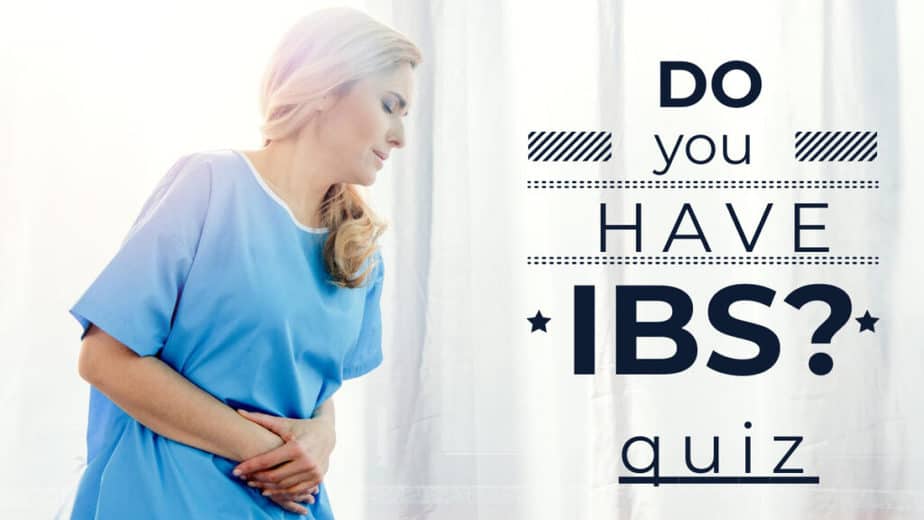Experiencing low energy and fatigue are common problems for Irritable Bowel Syndrome (IBS) sufferers.
Fatigue is defined as severe physical and/or mental tiredness caused by illness, stress, medication, or a combination of these.
- Related article: What Does IBS Mean?
Does IBS Cause Fatigue?
The health of your digestive system has an impact on practically every other system in your body. This involves how your body generates energy.
As a result, IBS can cause tiredness. The digestive system, specifically the small intestine wall, is a primary site for food and nutrient absorption into the body. If this isn’t working properly, there will be consequences.
For example, if we do not absorb enough necessary vitamins and minerals, our energy levels are impacted. This is especially true if you have diarrhea and food does not stay in your gut long enough for adequate absorption.
Another hypothesis is that ‘bad’ bacteria or pathogens are absorbed through the intestinal wall, putting the immune system under tremendous strain, resulting in fatigue.
Sleep difficulties are also associated with IBS, and a lack of sleep can affect energy levels during the day.
Researchers have shown differences in the stool microbial pattern between healthy patients and those with chronic fatigue syndrome, suggesting that the gut microbiome may play a role.
How Does IBS Cause Fatigue?
Several factors may influence fatigue and energy levels in patients with IBS.
- Anxiety and depression: Anxiety and depression are frequently associated with IBS. While we don’t know why we do know that exhaustion is a hallmark of worry and sadness. So, if you have anxiety or depression in addition to IBS, this may partially explain your fatigue.
- Sleep disturbances: People with IBS frequently have difficulty sleeping, whether it’s due to frequent bowel movements, abdominal cramps or bloating that wakes them up at night or hinders their ability to fall asleep.
- Nutritional deficiencies: People with IBS often eliminate several foods to try to relieve symptoms. Eating a bland diet may lead to some nutritional deficiencies that can contribute to IBS fatigue.
How Should IBS Fatigue Be Treated?
Lifestyle modifications like regular exercise and sleep hygiene are important in managing the fatigue associated with IBS.
Addressing anxiety and depression, ideally with therapy, exercise, and medications for IBS if needed, is important to help improve your sleep and energy levels.
Conventional IBS treatment will vary depending on the type of IBS you have. Stool softeners and laxatives are frequently given for IBS-C. Antidiarrheals and sometimes certain antibiotics are prescribed for IBS-D. Improving your bowel symptoms may allow you to have more restful sleep.
- Related article: Laxatives for Constipation
Antispasmodics (medications designed to relieve muscular spasms) are frequently prescribed for stomach discomfort and cramping. Low doses of antidepressants are often used to help modulate pain.
How to Prevent IBS Fatigue
Check Your Blood Levels
You can start by checking your blood levels for any micronutrient deficiencies. Many deficiencies, including iron, B12, and Vitamin D, can lead to decreased energy and fatigue.
Prioritize Sleep
Your sleep-wake cycle has an impact on your circadian rhythm, which is the body’s internal clock that affects energy levels, hormone balance, and digestion.
Set a consistent bedtime and wake-up time to ensure that you get at least 7-9 hours of sleep each night.
Take Care Of Your Mental Health
Because stress can cause fatigue and IBS symptoms, it is critical to discover measures to reduce stress and improve your general mental health.
This can be accomplished through a number of self-care activities as well as consultation with a mental health expert. Many mental health practitioners utilize cognitive-behavioral therapy (CBT) to treat IBS symptoms and fatigue.
Use Meditation To Relax
The brain was not designed to be filled with ideas, anxiety, to-do lists, and the other everyday stressors.
Meditation allows your brain to stay still and calm, which can help with hormones, focus, energy levels, and IBS symptoms.
Make Sure You’re Eating Right
If you are malnourished, your body will lack the calories it needs for adequate energy.
Work with a dietician to ensure your body is getting all the nutrients it needs and to help keep your IBS symptoms under control.
Balance Your Meals For Optimal Energy
Combine complex carbohydrates with fibrous veggies, high-quality protein, and healthy fats. This will assist your blood sugar levels and attention throughout the day.
Make sure you are staying adequately hydrated with plenty of water. Caffeine is a great stimulant, but also causes fluid loss. Make sure to consume water and other caffeine free beverages to avoid dehydration which can make you tired.
- Related Articles: Is Green Tea Good For IBS?
- Is Coffee Bad for Gut Health?
Stick To Healthy Fats
Healthy fats, particularly omega-3 fatty acids, help the brain and hormone balance. Omega-3s can be obtained by a supplement or by eating fatty seafood, like salmon.
Other sources of healthful fats include nuts, seeds, olives and olive oil, avocados and avocado oil, and coconut.
Move Around Whenever Possible
Movement improves blood flow, decreases stress, and boosts energy levels.
This does not imply that you spend a few hours a week at the gym, but rather that you move your body in ways that you enjoy every day.
Wake up your body with a morning yoga session, take a stroll during your lunch break, or go to the gym after work to build muscle. Even 10-15 minute increments can be helpful.
Do what you enjoy and what is achievable within the constraints of your day.
Try To Stay Organized
If your schedule is usually packed or you find yourself always working under stress and in a rush, you will certainly experience increased fatigue and mental exhaustion.
Take the time to plan your weeks and arrange a time for the activities listed above, as well as self-care and rest.
Improve your overall energy levels by arranging your chores ahead of time so that you are not continuously moving your focus between different tasks.
Get Professional Advice
Consult a dietician and see your GI doctor to help you manage your IBS symptoms and improve your gut microbiota.
If you also have anxiety or depression, seeing a counselor, therapist or psychiatrist to help manage your symptoms can improve quality of life, sleep, and IBS symptoms.
For more IBS articles and information on dealing with it:


